Our webinar on “Resilience of Critical Raw Materials through Circularity”
was held at Friday 9th May in Helsinki, Finland.
Presentations [PDF]
The seminar was started with a short introduction to the Urban Symbiosis project and our topic by Associate Professor Anna Aminoff (Supply Chain Management and Social Responsibility at Hanken School of Economics). She pointed out the importance of critical raw materials for green technologies and highlighted that Europe’s current recycling and domestic extraction of these materials is very limited, indicating a need for improved circularity and security of supply to enhance resiliency.
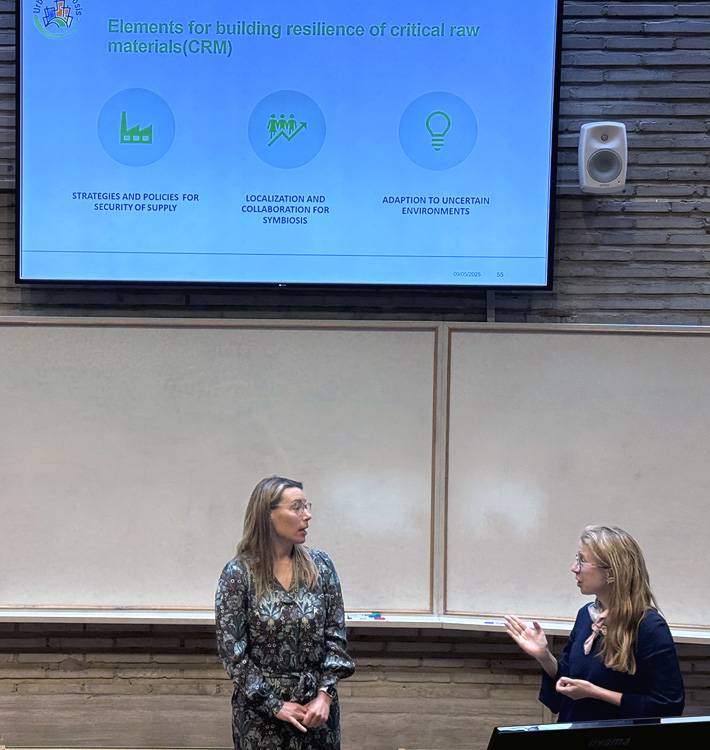
Then, Professor Gyöngyi Kovács (Supply Chain Management and Social Responsibility/ Hanken) discussed the aspects of supply security, emphasizing the importance of safeguarding supply chains to prevent disruptions and ensure steady access to necessary resources. She described, how comprehensive view of security should be looked i) in the context of global events, ii) through cascading impacts in secondary locations as well as iii) within regional/local possibilities for mitigation.
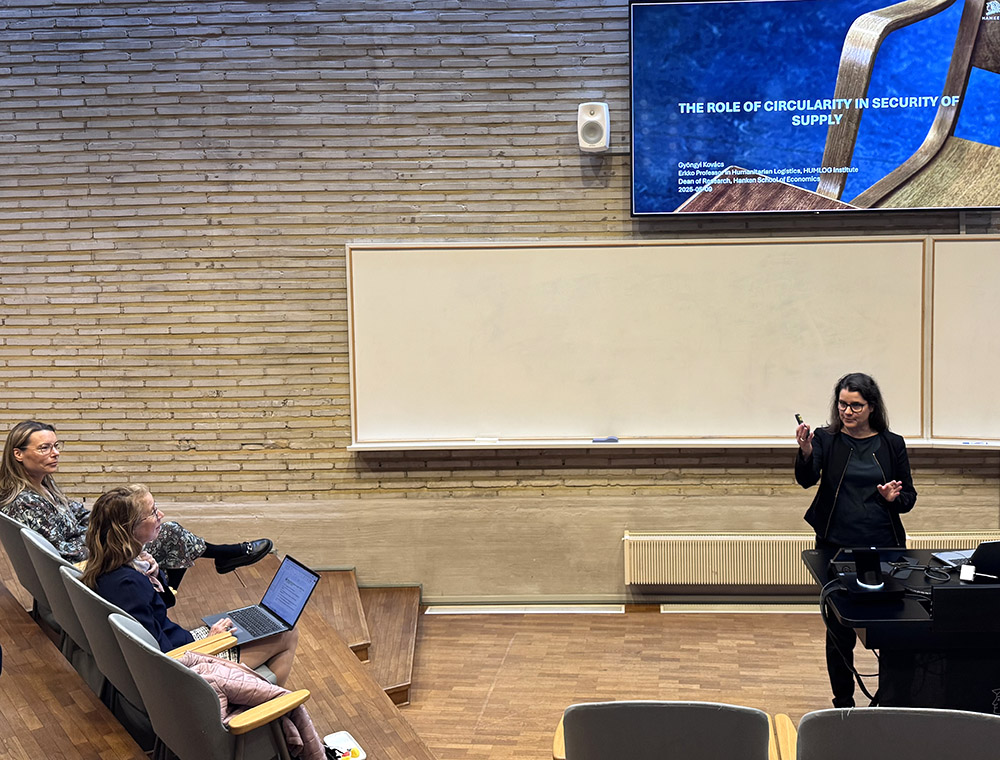
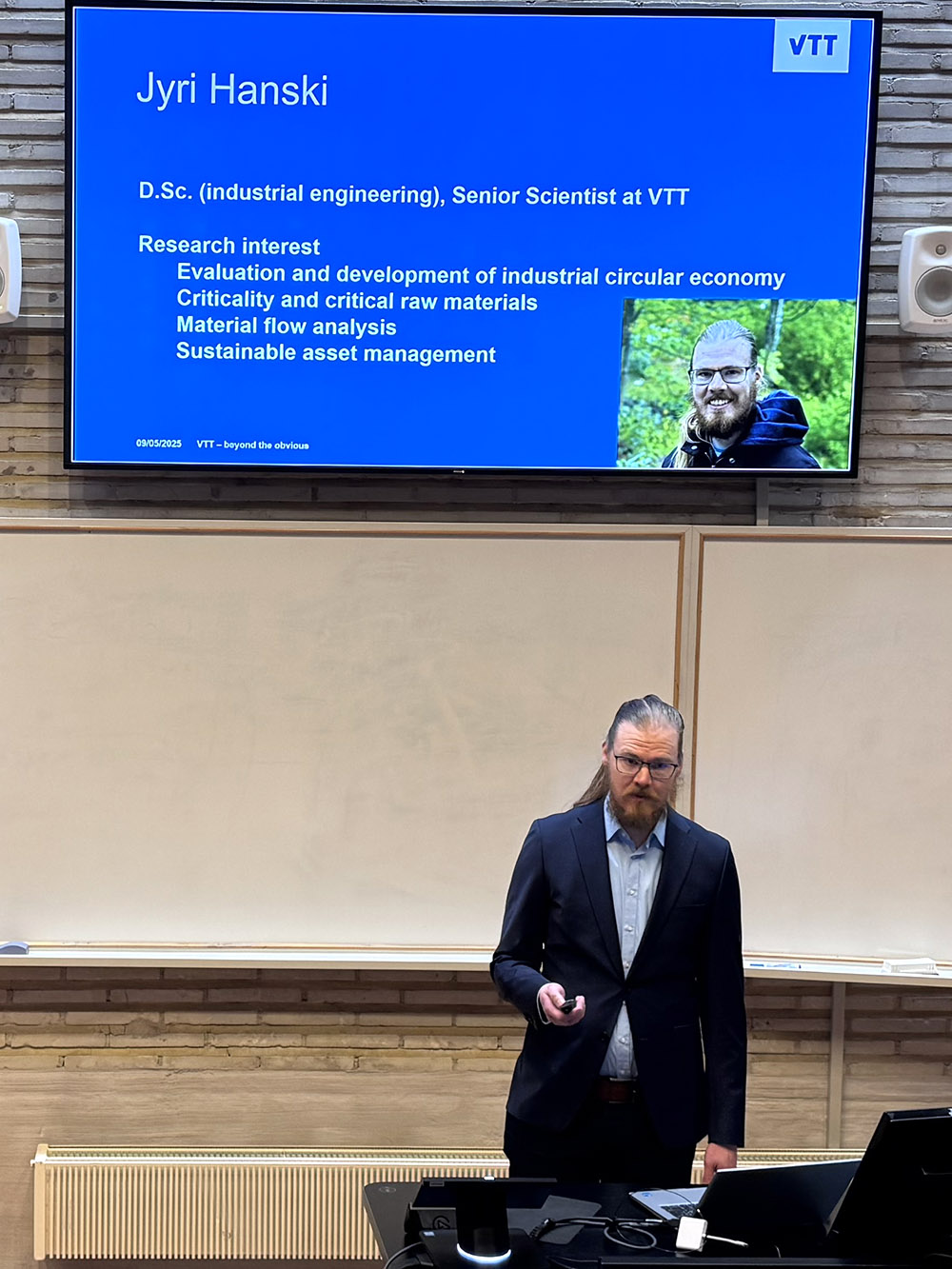
Senior Scientist Jyri Hanski (VTT Technical Research Centre of Finland Ltd) digged deeper into criticality, circularity, and resilience, bridged them to the concept of vulnerability of system from both EU and company perspectives. He was emphasizing the importance of evaluating these aspects in supply chains and materials management.
Leading research scientist Jaana Sorvari (SYKE: Finnish Environment Institute) provided a concrete case example of sustainability assessment regarding electronic micro mobility, particularly e-scooters and e-bikes. She pointed out that in addition to their environmental benefits also their safety concerns and effects on physical activity should be considered. This kind of holistic perspective is important when considering the impacts of policies between mobility options in cities.
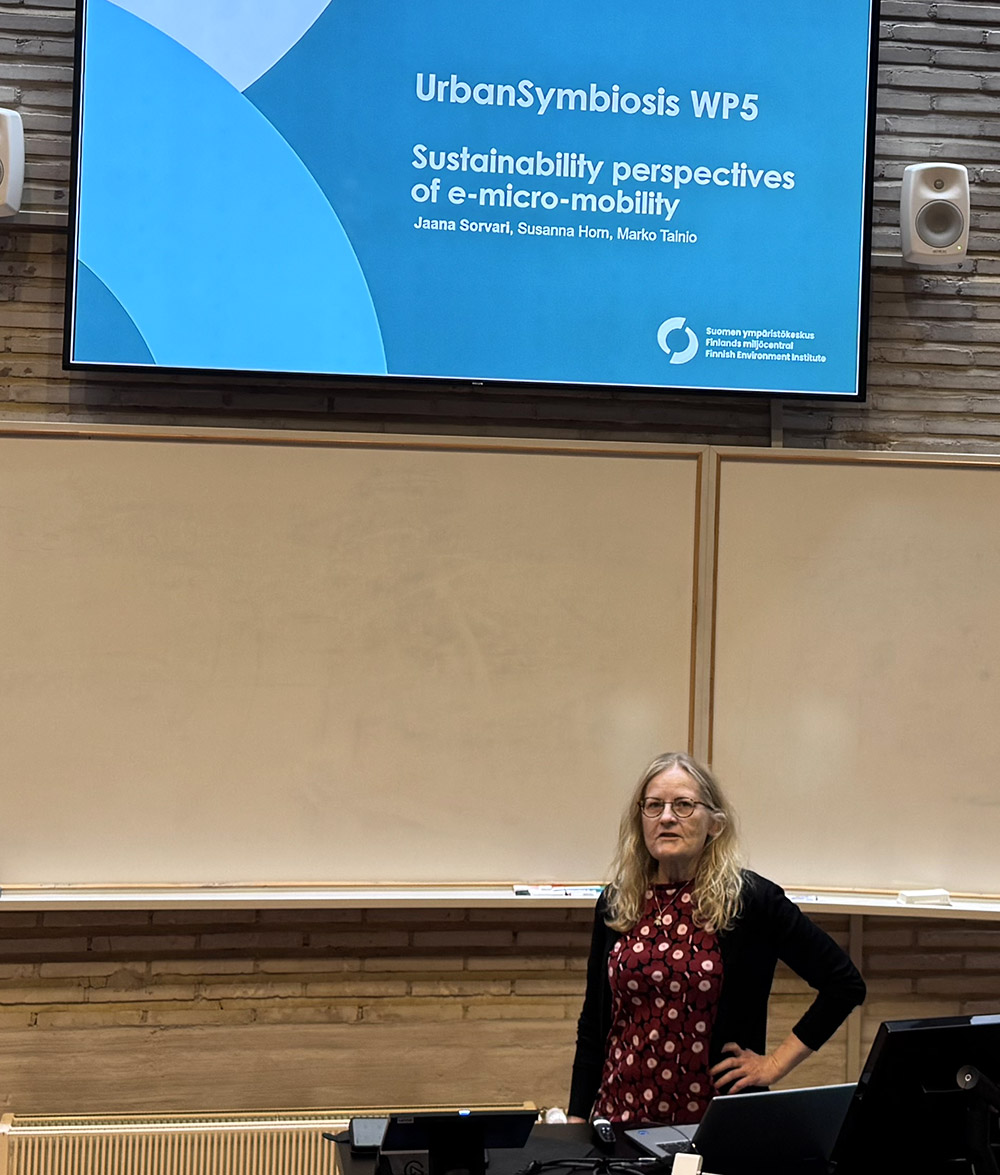
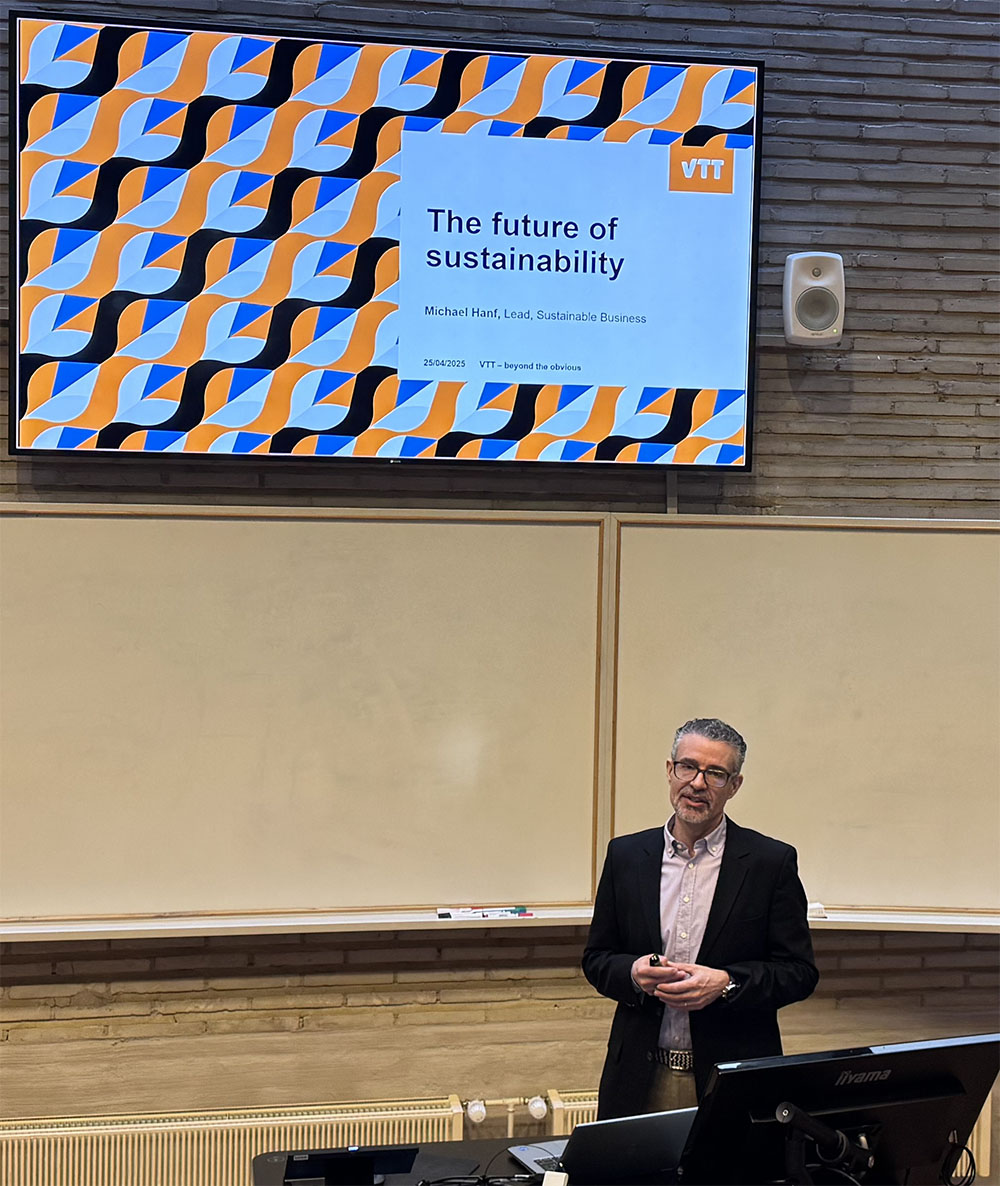
Based on the recent report on Future of Sustainability, Lead Michael Hanf (VTT) highlighted that the rapid changes in geopolitics, technology, and consumer behaviour are creating increasing uncertainty for companies and individuals. Organizations need to adopt long-term perspectives to build resilience and survive future trends. The future of sustainability involves 87 identified trends, including recycling technology, scarcity of resources, and political instability.
In concluding remarks, Research Manager Katri Valkokari (VTT) noted that the focus of the Urban Symbiosis project has shifted toward understanding and enhancing resilience and criticality due to global events, such as the COVID-19 pandemic and geopolitical changes. The project highlights three key areas: developing strategies and policies for supply security, fostering collaboration and localization to create new business models, and enhancing adaptability to navigate future uncertainties.
